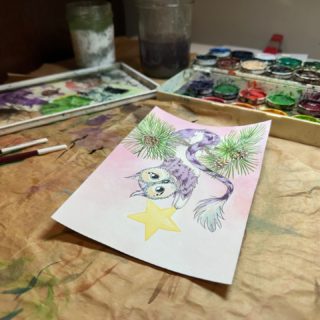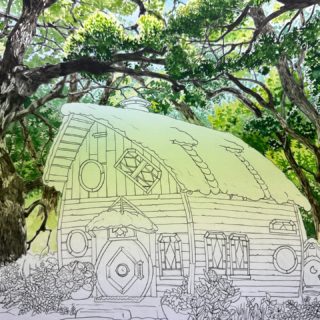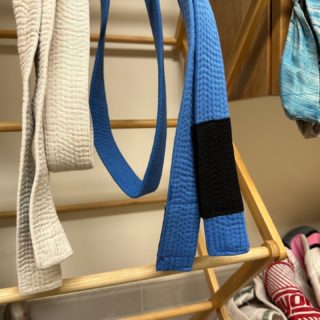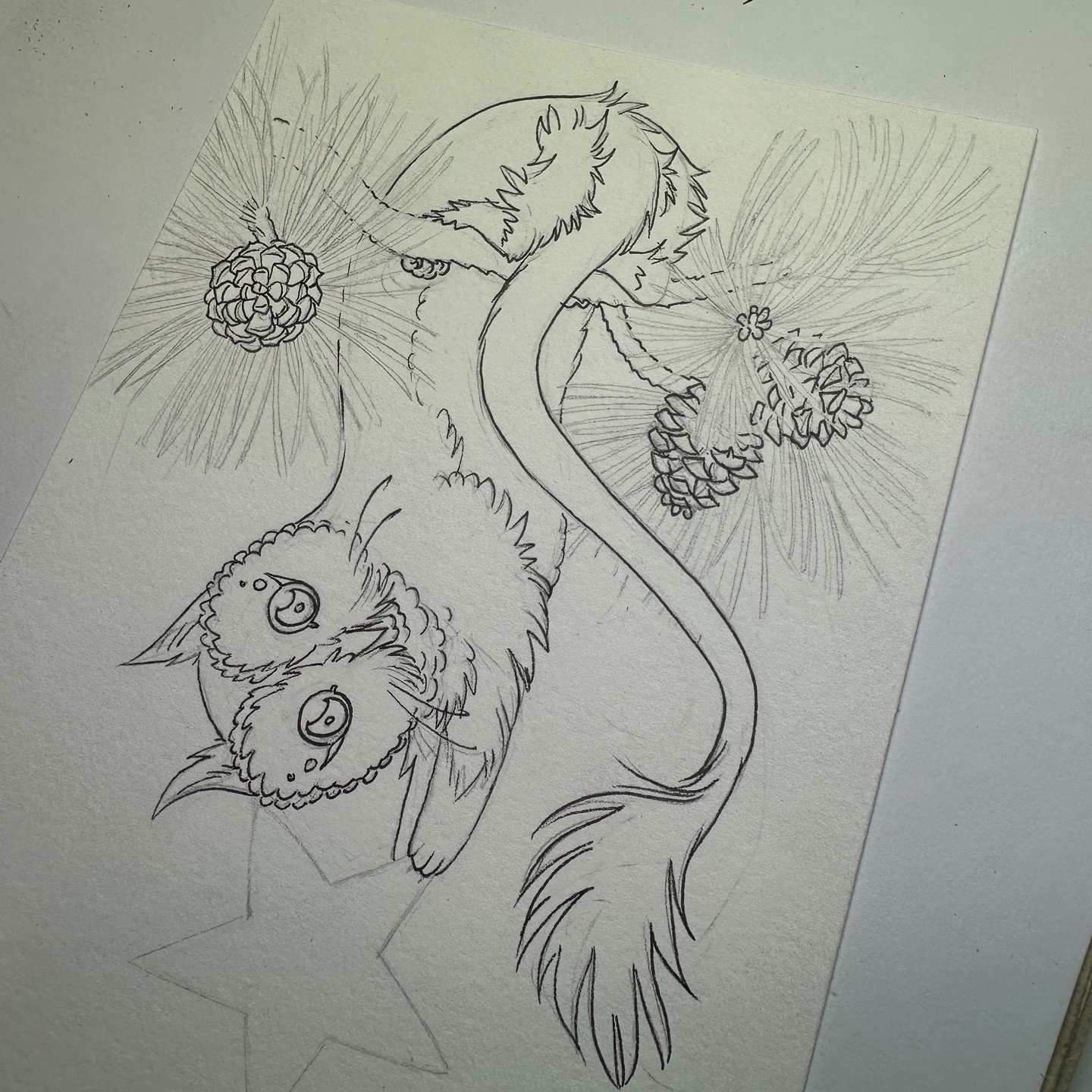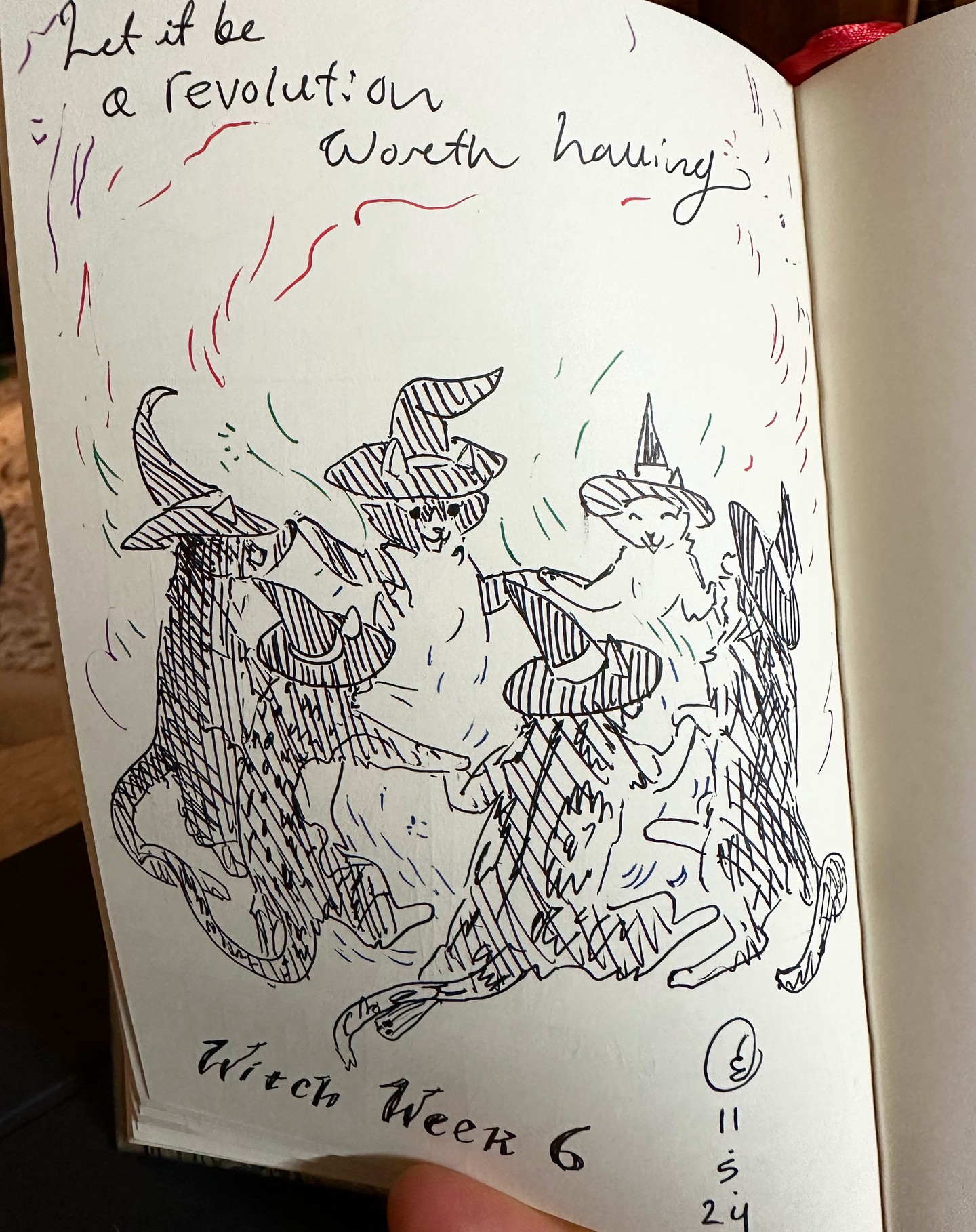The E-Newsletter of Goldeen Ogawa • Issue 23, October 2019
Originally posted for Patrons on October 4 on Patreon
What have I done?
- Cleanups for “Sir Camilla” (The Camilliad, Book 4)
- Released print and eBooks of The Aubergine Spellbook (Felpz Volume III) and Paving the Road to Hell (Driving Arcana Wheel 2)
- Product illustration for Earbrella charm
What am I doing?
- Cleanups on “Sir Camilla” (The Camilliad, Book 4)
- Edits for “Star Walker”
- Cover and interior illustrations for Lucena in the House of Madgrin
- Brush pen studies
Where am I going?
Later this month I’ll be traveling to Reading, PA for IlluxCon where I’ll be in the Artist Showcase on Friday and Saturday nights. I’ll have prints and cards, books—including Felpz III and Arcana Wheel 2—charms, stickers, and a few originals!
Something About Exercise
There’s a sentiment I’ve heard expressed that so-and-so exercised a lot but still got cancer and so what is the point? Or so-and-so exercised a lot but injured themselves in the course of their exercise, so what’s the point?
These sentiments make me sad, because they’re a sign of the misconception that regular exercise is a promise to prevent and cure all that does and can ail you.
Which it doesn’t and won’t.
Statistically, getting regular cardiovascular exercise does help prevent or moderate certain conditions, like heart disease and type II diabetes, but it’s not a panacea. It’s certainly not a contract between you and the Fates that they will not give you ALS when you’re 43.
Yet whenever I hear people talking dismissively of exercising as “not being worth it” because their mother/cousin/neighbor who raced triathlons was diagnosed with breast cancer, it makes me sad, because even if being in top physical form won’t prevent your body from getting very confused and attacking itself, it probably made those years you weren’t sick much more enjoyable. And to me that is where the true value of exercise lies: not in some misty promise of hale old-age, but in the very real and tangible benefits that come with being very healthy, very strong, right now. It’s the accumulated years of not having low back pain, of not becoming short of breath walking to the mailbox, of not being reliant on cars to get me around town. And the positives: being able to go on long bike rides that drastically improve my mental health and help me process stressful situations and difficult problems. Being able to do a physically demanding job with relative ease and comfort. Being able to lift heavy objects. Being mobile and limber and able to fully enjoy the life I have.
I’m old enough now (32) that I have heard people my age bewail their dilapidated bodies. And these aren’t construction workers. These are fellow creatives: artists and writers whose jobs are largely sedentary. And it’s not their fault: so many factors force creatives to work overtime just to make ends meet—forget having the time to invest in their physical condition. And then there’s the whole moralizing aspect of health and wellness. Which is garbage, because being healthy is not a moral issue. Being honest is, and for the most part these people are perfectly frank about their situations. They know sitting hunched in front of a computer for fourteen hours a day is bad for their back/shoulders/hips/well-really-everything, but they don’t have the time or resources or motivation to put in the work needed to counteract that. Or they don’t think they do, because of this systemic myth that tells them because they haven’t they are inferior and don’t deserve to be healthy.
Why bother, says this evil fantasy, you could get injured worse cycling. You could be hit by a car. You could crash and break your neck.
In point of fact: broken collar bones are far more common among cyclists. They are 100% temporary, usually heal with no intervention, and when necessary and western medicine is very good at fixing them. Unlike, say, Alzheimer’s. But people sit in chairs all day and develop chronic orthopedic injuries and are told to think “this is just the same as tearing my ACL skiing.”
It’s not. Unless you’re training for Olympic level competition (at which point health is no longer the priority), the orthopedic injuries you get from physical activity are acute ones. They are painful, yes. They will set you back, yes. But they heal. You learn that you can heal and come back stronger.
But exercise is sold as a miracle cure like any other snake oil, and when the obvious fallacy of this is revealed people assume it’s complete hen’s teeth. But it’s not. It’s complicated and variable and difficult and rewarding and—yes—fun, once you find the form that sings to you. But people are given boring exercises to do in uncomfortable situations and then told that they are inferior humans for having the instinctive urge to eat high-value foods like pizza and ice cream.
And I hate that. I hate that anyone should be shamed for their physical condition. I hate that so much of the time the people perpetuating this shame are the ones who have internalized it the most, who live in constant fear of becoming the one who is shamed.
(This is an uncomfortable aspect of fat-shaming: for the shamer, it comes from a deep-seated hatred and fear of themselves and their own perceived flaws.)
I wish I could wipe the whole mess aside. I wish I could reset the miasma of fear and projected self-loathing, frustration and self-sabotage. If I could, I would say:
Be kind to yourself. Take a breath. There are no promises in life. Only the now. But hopefully there will also be a later. So do what feels good now, and also what you will be glad you did later. Do what you can, even if it’s less than what you’d like. Your progression will look different from someone else’s. Your ultimate capability probably won’t be what someone else’s is, either. But it might not be what you think it will be. It might be more.
So try. You might not run a marathon when you’re 90, but you might be fast enough to outrun the monsters that are chasing you now.
Try, so you may be strong enough to destroy the ones that catch you.
*
What’s coming in October?
Patrons can look forward to:
- Saturday updates to the Sparks Gallery
- Sunday updates to “Travels in Valdelluna”
- Progress pics of Lucena illustrations!
ProTip
You can cook rice on the stovetop using a regular saucepan. You’ll want 1 part rice to 2 parts water. Bring water to a boil and then stir in the rice. Reduce heat and simmer for 40-45 minutes (brown and black rice) or 20-25 minutes (white rice). When in doubt use lower heat so you don’t burn the rice, and simmer for longer. You just get softer, creamier rice. Add seasonings or butter if you like.
This post has been generously sponsored by my Fellow Traveler patrons. Come join the party!

